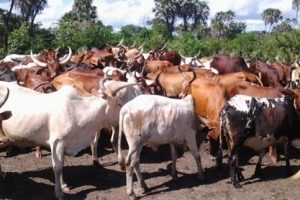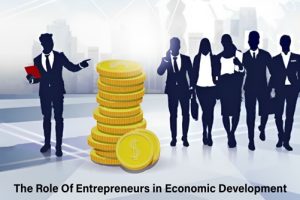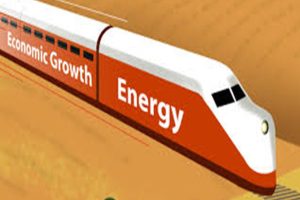BY MENGESHA AMARE
Over the last four years, Ethiopia has done a lot regarding the economic sector amid a range of challenges to come up with a significant reduction in poverty and improved living standards for many Ethiopians thoug a long journey remains to be trekked. The country’s large infrastructure investments are beginning to bear fruit and the provision of public services such as education and health has increased dramatically, too.
This writer approached Somson Denboba, who is a graduate of Economics working for a certain NGO as an expert of economic spheres, to have a piece of information about the overall economic move at national level and the way forward. “If a country has economically well developed, it will be difficult for others to interfere, subjugate and twist its leaders’ arms,” Somson said.
Emphasizing that the issue of economic independence is by no means a call for a reduction of international economic relations whether in the form of trade or cooperation among nations, Solomon said Ethiopians have to work hard to bring about economic independence via working hard as the country does have everything in its reach.
Economic dependence would with no doubt leads to an inherently unstable state that could hardly voice out its freedom, right to carry out a range of development activities for the benefit of its citizens, among others. Yes, economic dependence has attracted inherent inequality (both internally and externally), which must be prettily condemned.
Since assuming the leadership by election, Prime Minister Abiy’s administration has created space for a more inclusive political dialogue and has taken steps to bring stability to the country in particular and to the region in general. On the economic front, the new government has announced an ambitious reform program for the country aimed at opening the economy to private investment and competition to support sustainable growth and lasting peace as economically developed nations have a potential to reduce conflicts, turmoil and even sporadic societal clashes, he opined.
As to Somson, developing an open and inclusive economy needs to be well consolidated and the new legal framework for public-private partnerships as this move can play an important role in strengthening growth by promoting private sector development and the provision of public services, while reducing government costs. It also calls for privatization and removal of barriers to private investment in key sectors, which supports policy announcements by the government.
He further said that, the government also wants to develop the domestic financial system via reinvigorating homegrown economy. An important first step will be to introduce a market for government securities with market-determined interest rates. This will allow the central bank to reduce direct financing of the government and increase the effectiveness of monetary policy in maintaining low and stable inflation.
He said, “Reforms to support continued economic development have to be well consolidated. The Development Bank of Ethiopia—which has to work to garner high returns to investments in the country. A more flexible system for the exchange rate is also needed to increase foreign exchange reserves, improve external competitiveness, and increase the availability of foreign exchange. This would support the country’s continued development not only the economic one, but also other decisive sectors like social and political advancements.”
Poverty reduction in Ethiopia has to be capitalized on as the country is advancing towards sustainable development through import substitution and export promotion, he added. As to Somson, sustained rapid economic growth in Ethiopia needs to be translated into strong poverty reduction in urban areas, with the poverty rate tumbling. In rural areas of Ethiopia, the reduction in poverty has been relatively slow with the poverty rate decreasing monetary dimensions of welfare such as education, health, and access to water and sanitation.
Strong poverty reduction in urban areas is tightly linked to positive labor market developments over the years, in particular increasing returns to self-employment. Somson said, “As infrastructure bottlenecks such as water shortages and power outages, inadequate access to finance, a shortage of foreign exchange, and a shortage of raw materials have all contributed to underperformance in various sectors, they have to be well dealt with to further speed up the cuntry’s journey towards economic independence and financial freedom.”
The consistently high economic growth over the last few years in particular has resulted in positive trends in poverty reduction in both urban and rural areas. However, gains are modest when compared to other countries that saw fast growth, and inequality has increased in recent years. Furthermore, conflicts in various parts of Ethiopia risk undermining the economic and social development progress the country has achieved in recent years.
Ethiopia’s challenges have made the country strong and pushed it to firmly emarked on positive economic development on a sustainable basis and accelerating poverty reduction — which both require significant progress in job creation, as well as improved governance, to ensure that growth is equitable across society.
Somson said, the country, has to consolidate urban employment levels and help the unemployed segments of the society full recover over poverty. As food insecurity both in urban and rural areas is growing due to adverse weather events, locust invasion, conflict, and global conditions leading to high inflation of food prices, the government is left with big assignment to deal with.
Yes, he said that the Ethiopian Government has developed comprehensive agricultural and economic development plans that have contributed to the country’s substantial growth in agriculture, industry and services sectors. In order to accomplish this, country’s mission is to advance an environment that supports increased private sector investment and growth. It is really woth citing!
He further stated that, the Ethiopian government is commited to advance a business-friendly and enabling policy environment in order to promote increased private sector investment and growth, and expand trade opportunities. As practically witnessed, the governmmnt is working with producers, processors and suppliers to build private sector capacity and competitiveness. It has also fostered private sector development by enabling a more stable and inclusive financial system. This is achieved by promoting discussion between private and public institutions and improving business development services for small and medium enterprises.
He said, “Labor becomes more productive as the ratio of capital expenditures per worker increases. An improvement in labor productivity increases the growth rate of the economy, indeed! The quantity and availability of natural resources affect the rate of economic growth. The discovery of more natural resources, such as oil or mineral deposits, will give a boost to the economy by increasing a country’s production capacity.”
According to Somson, the effectiveness of the country at utilizing and exploiting its natural resources is a function of the skills of the labor force, type of technology and the availability of capital. Since skilled and educated workers are able to use these natural resources to spur the growth of the economy, Ethiopia should firmly capitalize on it.
Improvements in technology have also high impact on economic growth. As the scientific community makes more discoveries, specialists find ways to apply these innovations as more sophisticated production techniques. He also said that, the application of better technology means the same amount of labor will be more productive, and economic growth will advance at a lower cost.
“Rural localities and urban areas across the nation seek to strengthen their economy, create jobs for their citizens and reduce inequalities. Furthermore, attention will be paid to decent work, human rights and the inclusion of vulnerable and marginalised groups, such as women and youth, in the local economy,” Somson added.
As to Somson, it is well recognized that Ethiopia with plenty of natural resources enjoy good growth than countries with small amount of natural resources. Besides, the efficient utilization or exploitation of natural resources depends on the skills and abilities of human resource, technology used and availability of funds. A country having skilled and educated workforce with rich natural resources takes the economy on the growth path.
If economic independence is viewed as a function of the internal level of productive and technical capacity and of the degree of internal integration, the Ethiopian economy undoubtedly has become more independent especially since the recenet reform, he stated.
Ethiopia is one of the largest least developed countries (LDCs) in Sub-Saharan Africa, with a population of about 115 million. The Ethiopian economy has been growing rapidly since recently and long-term plans are under way that may lift the country to a middle-income category. A major driving force behind this remarkable achievement is the refom government, which mobilized resources for investment in economic infrastructure and human capital while harnessing some of the country’s natural resources, as to him.
He said, “An improvement in the transparency and efficiency of these institutions is crucial for market competitiveness and sustainable growth. The second concern, also related to private investment, is the rate of expansion of the manufacturing sector. The export of manufactured products has yet to show meaningful contributions to Ethiopia’s export earnings, too.”
The Ethiopian Herald December 6/2022





